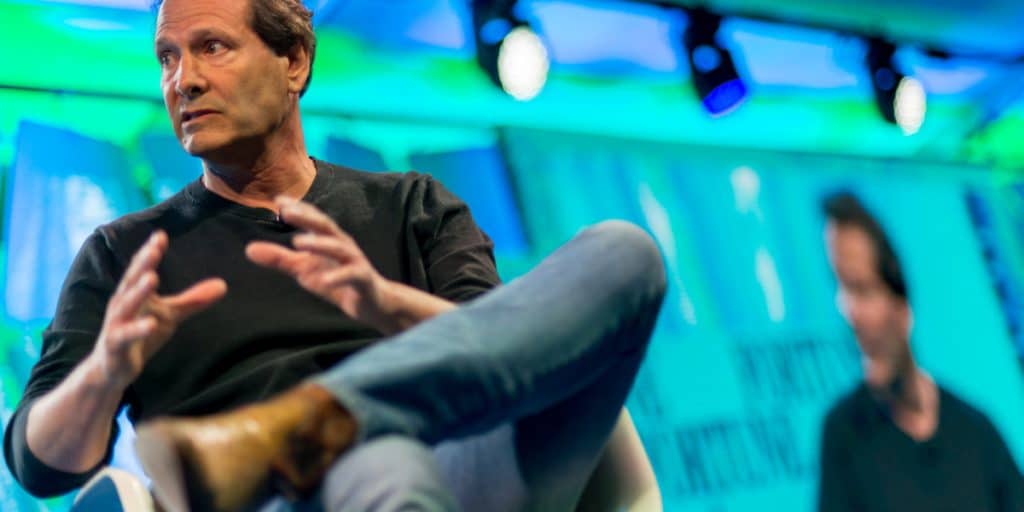Since Facebook unveiled the groundbreaking blockchain initiative Libra in June, a total of 28 businesses signed up to be part of the Libra Alliance. A consortium of firms, including PayPal, Visa, MasterCard, and Coin base, will work to develop and run infrastructure around the project.
In October, PayPal was the first organization to leave the Libra Association without stating a particular explanation simply that it agreed to “forgo more participation in the Libra Association at this time and continue to concentrate on pursuing our current mandate and market goals while we aim to democratize access to financial services for underserved communities.”
Last week, PayPal CEO Dan Schulman stopped at Fortune’s office to meet some reporters and editors. We spoke about a wide range of subjects — so big, in reality, that I heard he was practicing martial arts in the morning, and his resting heart rate was 48 beats per minute. (Compare with mine, which is a 71-powered coffee.
Yet my concerns were about PayPal’s partnership with Libra and the company’s own research in the cryptocurrency field. Here’s exactly what Schulman thought.
FORTUNE: Why have you agreed to withdraw from the Libra Association?
When David Marcus [Facebook’s head of Libra] first came to speak to us about Libra, he described it in terms that spoke to us regarding financial inclusion. We’re also researching the next wave of technologies — like blockchain architecture to make it more effective. And you know, we’d like to hear more about it. We were both interested in learning more.
As we learned more about [Libra] and saw the number of things that were still
left to do and the number of things we still had to do on our own
roadmap outside of Libra, we said, “You know, we think if we focus on our own
roadmap, we’d be able to advance financial inclusion faster than if we put all
these resources against Libra.”
It wasn’t an acrimonious breakup or anything like that. It’s just that they’re going to be going down a path that we’re really involved in looking at and watching, so maybe then, there are ways we can work together. I wish them both the best of luck.
Is it that you were annoyed by administrative scrutiny?
Regulatory and enforcement, for us, are important. Yet we have a very close relationship with every regulator out there. We’re highly positive about that. That wasn’t exactly what we were afraid of. It was all about, “Why do we want to center our efforts, and what do we want to do today to further our mission? “As soon as they decide to work things out, we’ll take another look at where they are.
Earlier this year, PayPal’s CFO John Rainey said the company had teams working on blockchain and cryptocurrency. Can you share a little more about what they’re working on?
Yes and no. Some of this is competitive, and we don’t really want to …
Is it in rivalry with Libra?
No, it doesn’t actually overlap with Libra. It’s a strategic advantage. Like, you may like to know what our next innovation is or what our next acquisition is. I don’t think I should teach you about those either.
We believe a lot of commitment is made to blockchain technology. It’s interesting to us, but it also has to do something the conventional rails can’t do. Many people believe blockchain is for performance, but the technology is pretty effective today. Often there are middlemen in between, but the rails are very secure. So we assume a lot of the cool stuff that can happen on the blockchain is about identities, for example.
It’s for the software on top of that, not just doing it to lower the rate by one-eighth or one-eighth of a percentage. By the way, if it turns out to be a low-cost network, we’re all going to move on to that.
On the crypto side, it’s still very unpredictable, and we don’t have much competition from the merchants because the merchants run on very low margins. Then all they’ve got to do is actually convert it into fiat, and there’s a fee to convert it into fiat, and any expense benefit is generally eaten up by the exchange fee. If it is less unreliable, it won’t be a currency commonly embraced by online traders — not the dark side, but the mainstream.
This doesn’t say that I don’t think that blockchain is an intriguing concept and that people are trading it quite a bit. It’s more commodity-like than cash-like right now. So you can dream about having situations in various countries and locations where they can be more secure than alternatives.
Will you own any cryptocurrencies?
Yes. Bitcoin.
Only Bitcoin?
Only. Yes.
